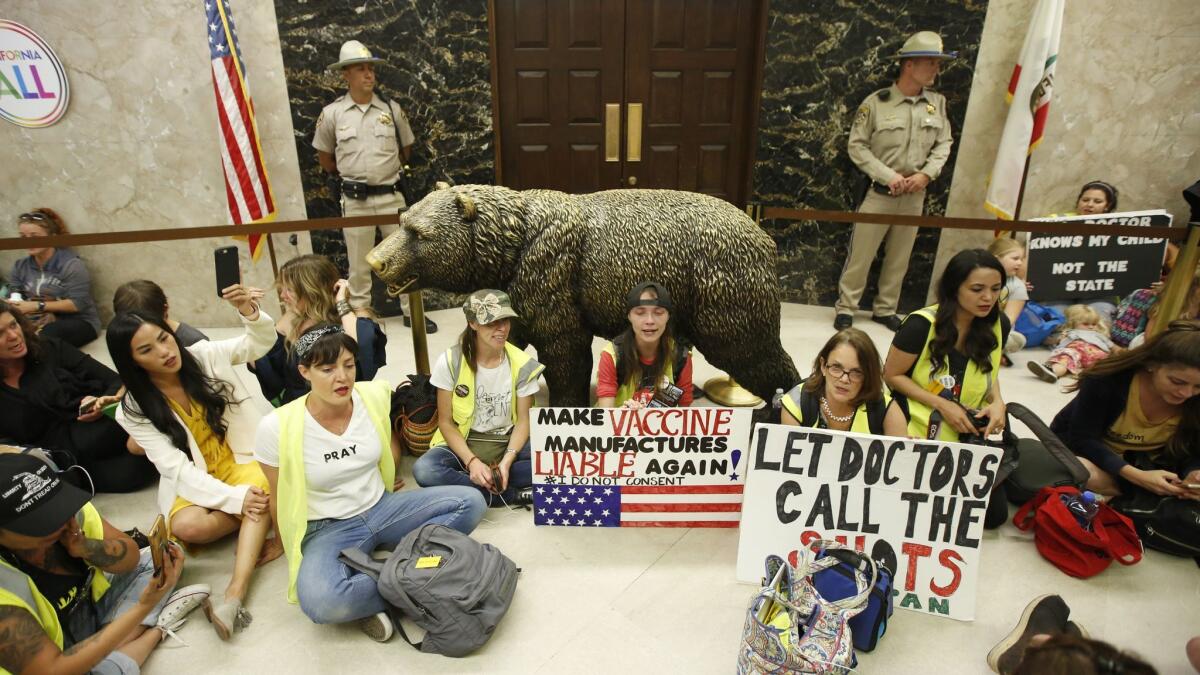Vaccine bill critics want California voters to block new limits on exemptions

- Share via
SACRAMENTO — Three women who stood on chairs to interrupt a state Capitol hearing on vaccine legislation are trying another route to stop newly enacted school immunization laws: California’s statewide election next November.
Tara Thornton, Denise Aguilar and Heidi Munoz Gleisner filed referenda on Wednesday to overturn two laws signed by Gov. Gavin Newsom on Monday, statutes that will implement new restrictions on child medical exemptions for vaccines beginning Jan. 1.
Filing a proposed statewide referendum with the state attorney general is the first step in the process of placing a measure on the ballot. To qualify for the 2020 ballot, each referendum will need 623,212 valid signatures from registered voters within 90 days of the laws being enacted.
Messages left for Thornton were not immediately returned Wednesday. The three women who filed the referenda were activists opposing Senate Bill 276 and Senate Bill 714, and faced possible arrest during one hearing when they refused to stop standing on chairs and interrupting lawmakers. In the end, lawmakers allowed the women to continue and they were not arrested.
After the hearing, Thornton told The Times she had no choice but to try to stop the legislation.
“I’m willing to do everything to protect my son and other children,” she said.
The author of the laws the referenda are targeting, state Sen. Richard Pan (D-Sacramento), said he “supported their right to file it.”
“What they haven’t demonstrated through the legislative process is a compelling argument based on science and facts and when they go to the public they will need that,” Pan said. “Pounding on doors and walls won’t be any more compelling to the public as it was to the Legislature.”
Gathering thousands of voter signatures in a narrow time frame could take a substantial amount of money to accomplish. Bail industry groups spent almost $3 million to qualify their measure to overturn a state law last year that eliminated cash bail for those charged with a criminal offense.
A similar effort to overturn a 2015 law that eliminated vaccine exemptions based on personal or religious beliefs fell far short of the required signatures needed to make the 2016 ballot.
More to Read
Sign up for Essential California
The most important California stories and recommendations in your inbox every morning.
You may occasionally receive promotional content from the Los Angeles Times.











